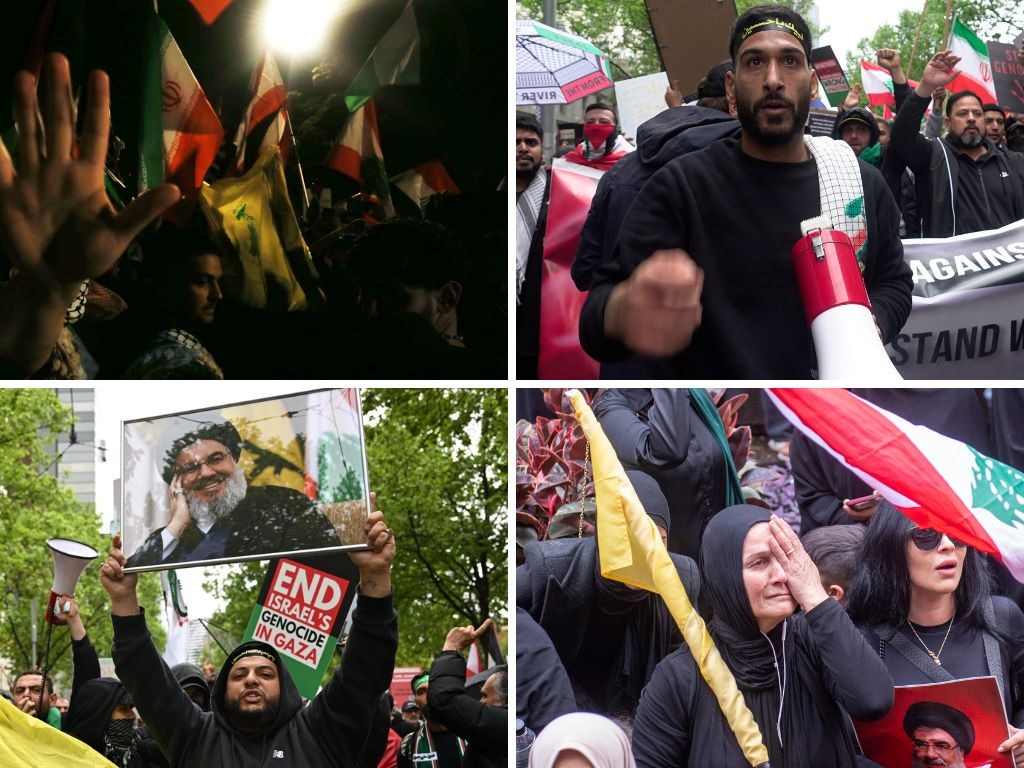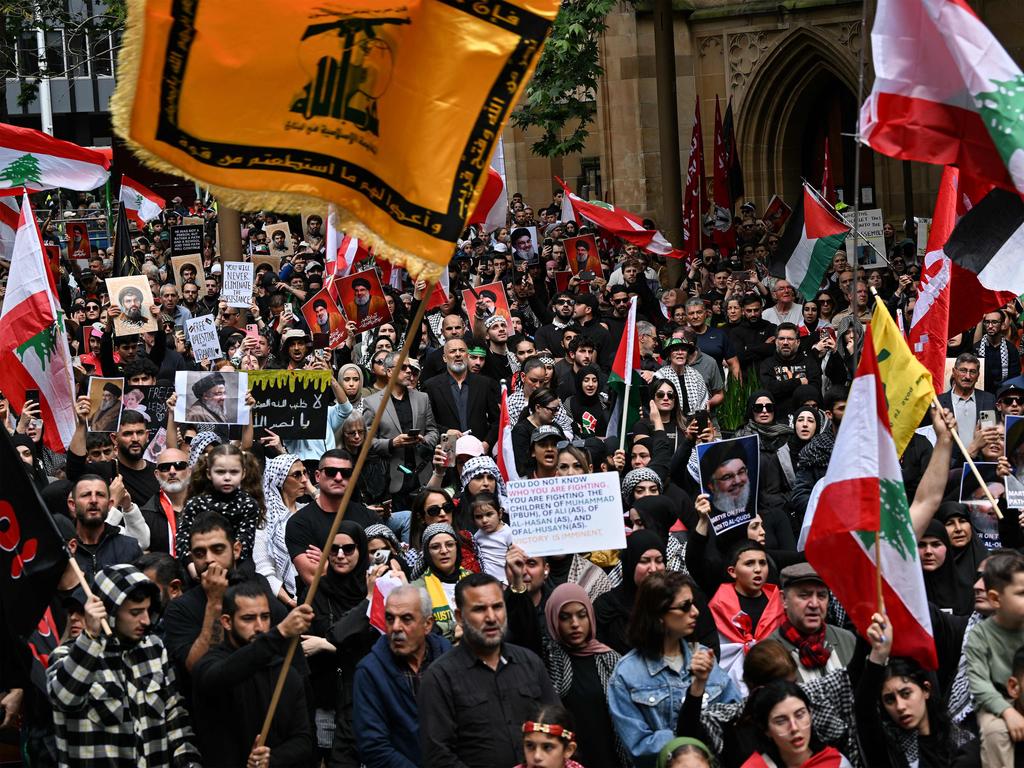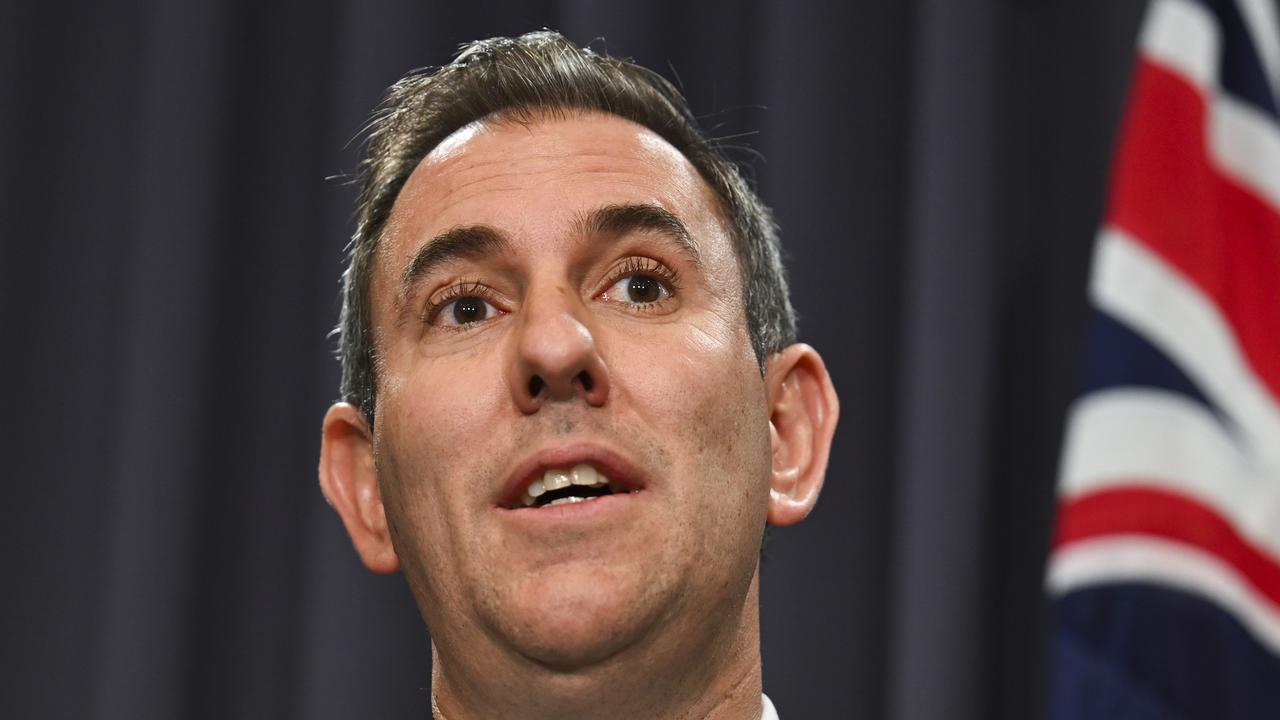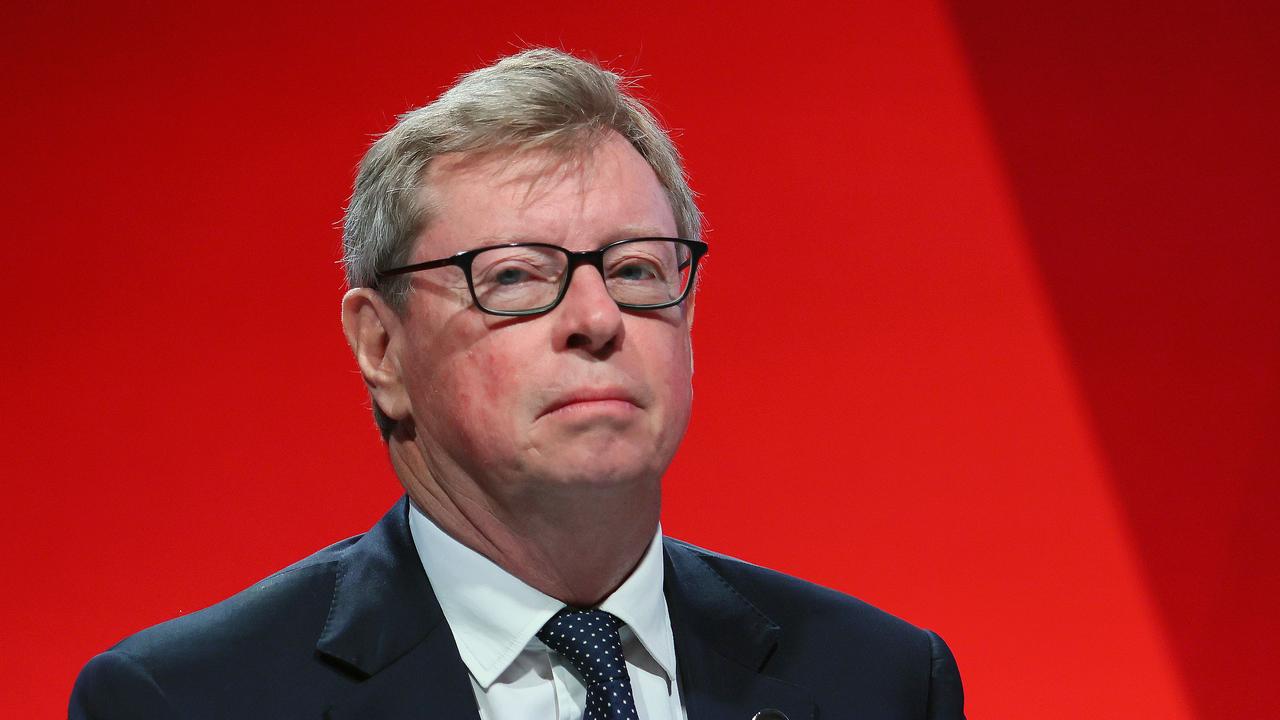
You can’t purchase a Hezbollah flag on eBay. Purveyors of flags in Australia are prohibited by law from selling it, and without descending into creepy nooks of the internet on the dark web only one online vendor of dubious provenance offers the flag for sale for $US40 ($58) but is out of stock. Perhaps there has been a run on sales.
Howls of outrage have come from all points of the political divide following protest rallies in Sydney and Melbourne where Hezbollah flags were flown.
Home Affairs Minister Tony Burke threatened to cancel visas of flag-toting miscreants while conceding he could not be sure if the flag wavers were fly-in, fly-outs or Australian residents.
Liberal senator James Paterson issued a statement claiming the public display of “symbols of a listed terrorist organisation is a crime” when, in fact, the bill he voted for that became law late last year carries with it a series of ifs and buts.
This is a mess of the government’s making based on cobbled-together law. The responsibility for the shambles extends to the entire federal parliament, which waved through the bill late last year in an orgy of self-congratulation. The Counter-Terrorism Legislation Amendment (Prohibited Hate Symbols and Other Measures) Act 2023 is black-letter law that attempts to solve two distinct problems with one muddled law.

It may be useful in prosecuting those who tote Nazi symbols in public or online but it is less clear how it may serve to prohibit other symbols of racial hatred including Hezbollah’s flag, which features an AK-47 and a phrase from the Koran in Arabic, “Then surely the party of Allah are they that shall be triumphant”, with script at the bottom that translates as “The Islamic Resistance in Lebanon”.
Hezbollah is a proscribed terrorist group in Australia, the US, Canada, Britain and New Zealand. The Iranian-funded and trained paramilitary group has a larger arsenal of artillery than most nations enjoy. The Centre for Strategic and International Studies in Washington called it “the world’s most heavily armed non-state actor” in a report in 2018. It is speculated that Hezbollah has as many as 200,000 rockets and missiles of various ranges.
Hezbollah doesn’t limit its terrorism to the Middle East. In 1994, Hezbollah claimed responsibility for car bombings of a Jewish community centre in Argentina that killed 85 people.
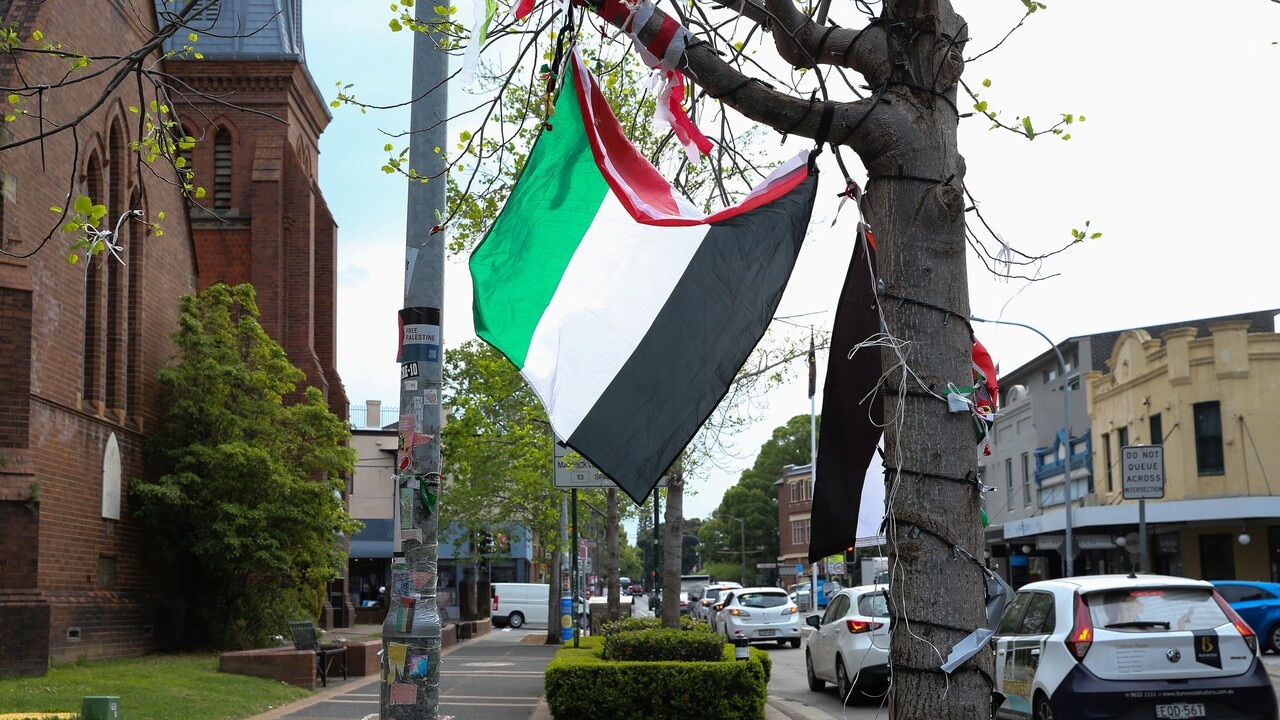
The organisation’s manifesto published in 2009 recommitted its members to the destruction of the state of Israel.
There is little doubt that the Hezbollah flag is as offensive to Jewish Australians as the public display of the Nazi hakenkreuz or swastika, but that is not the test for a successful prosecution.
Merely displaying the flag in a public space is not sufficient for an arrest to be made. Police need to go through a veritable laundry list of vague law in part because our politicians imposed the reasonable person test – the formless everyman sitting on a Bondi tram – to determine if a person waving the Hezbollah flag at a rally is engaged in the “dissemination of ideas based on racial superiority or racial hatred, (which) could incite another person or a group of persons to offend, insult, humiliate or intimidate”.

There are various other codicils, and immediately we move into grey areas of interpretation to be left in the hands of police, judges, juries and magistrates.
The reasons for this are that the swastika holds religious significance for Hindus, Jains and Buddhists in Australia. But then politicians decided to tack on the symbols of proscribed terrorist organisations in what appears to be an afterthought.
In June last year, federal Attorney-General Mark Dreyfus announced the legislation would ban the display of Nazi symbols in public and online. “There is no place in Australia for symbols that glorify the horrors of the Holocaust,” Dreyfus said in a statement. “And we will no longer allow people to profit from the display and sale of items which celebrate the Nazis and their evil ideology.”
A week later the bill quietly was changed and took the giant leap from prohibiting the display of Nazi symbols where a reasonable person is likely to conclude that a Nazi hakenkreuz is totemic of racial hatred to symbols of proscribed terrorist groups where that same reasonable person may draw a different conclusion.
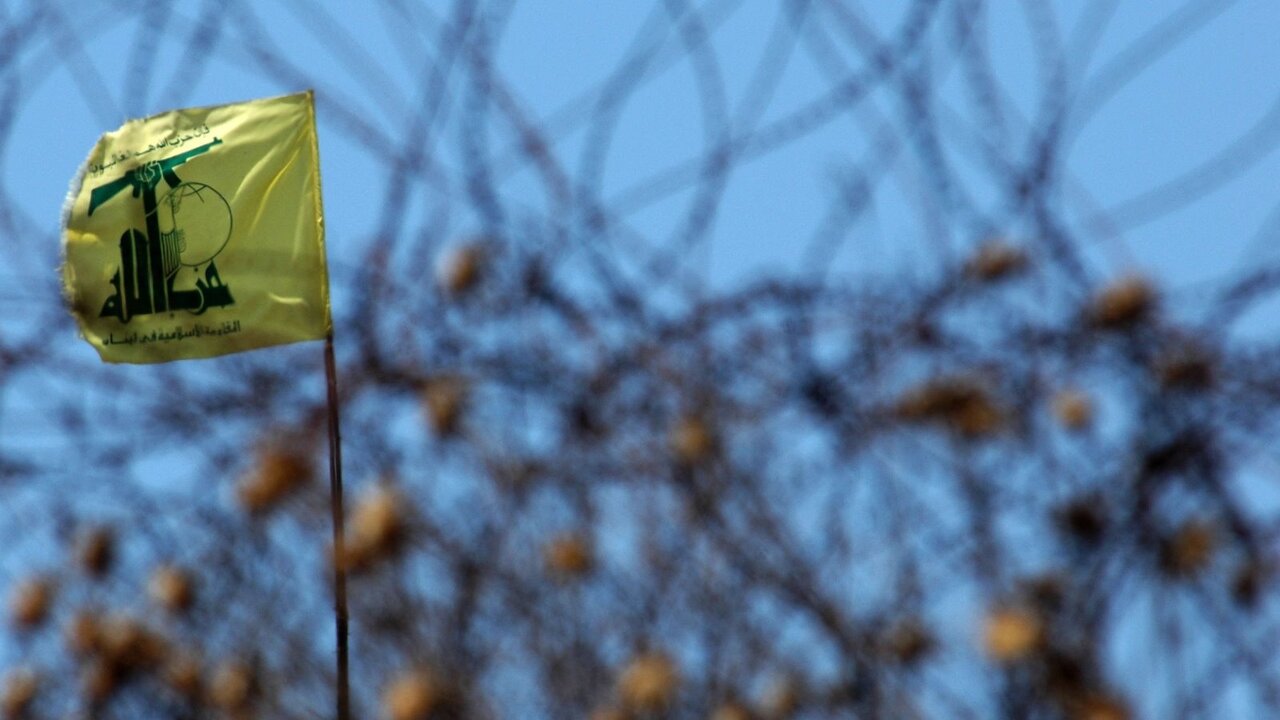
The motivation of parliamentarians appears to have been the all-too frequent legislative impulse: “We need to do something. This is something. So, let’s do this.”
It is a stunning piece of deliberate disingenuousness for any politician who voted for the bill to now point accusing fingers at police. Bad laws lead to bad outcomes, with police becoming political punching bags.
At protest rallies and elsewhere, police make operational decisions on the ground and often on the run. Public order offences occur often at protest rallies but enforcement is subject to an assessment of public safety and the safety of police officers, which should and must be paramount. In other words, police wading into a volatile situation to make arrests may trigger a violent confrontation. Sound judgment is needed.
Police are not to blame for bad laws. Sadly, parliaments make them. Our legislators also can acknowledge their errors and amend them.



